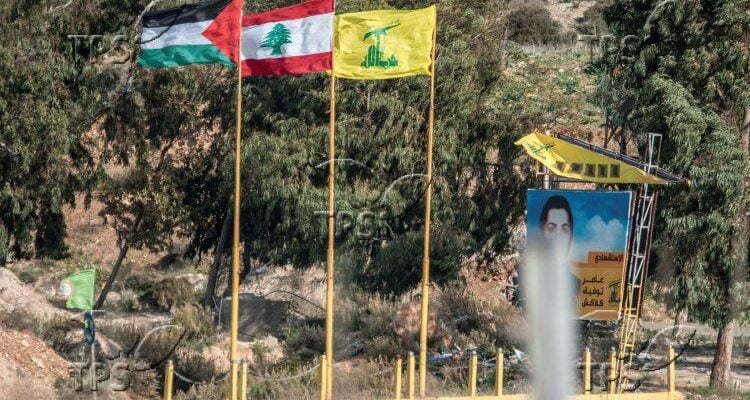The alliance of Iranian-backed terror groups known as the Jerusalem Axis is Iran’s counterweight to the Abraham Accords.
By Baruch Yedid, TPS
Ties between Hamas and Hezbollah are growing stronger and more dangerous in the refugee camps across Lebanon, raising concerns about the security of the UN-administered camps.
The Iranian government has taken advantage of Hamas’ financial difficulties, allowing the terror group to establish itself in southern Lebanon. This access comes at a cost: In return, Iran has demanded that the Palestinian terror group give more deference to Tehran and Hezbollah and essentially end Hamas’s relationship with Egypt.
This alliance gives Hamas strategic depth and influence in the refugee camps, allowing the Sunni Muslim terror group to become part of Southern Lebanon’s “Shi’ite fabric. The volatile Palestinian camps were previously dominated by Fatah. Meanwhile, Hezbollah leader Hassan Nasrallah sees Hamas as his “proxy” against Israel, seemingly enabling him to act without drawing Israeli missiles to Hezbollah’s targets.
The alliance of Iranian-backed terror groups known as the Jerusalem Axis is Iran’s counterweight to the Abraham Accords. This axis finds support in Syria, Lebanon, Iraq and Yemen.
However, Hamas is caught in a web of internal and external interests, often conflicting with each other. Tehran dictates the pace of Hamas’ establishment in Lebanon, interfering in its internal affairs and demanding its compliance with the authority of the Iranian Revolutionary Guards’ senior figures, and particularly Nasrallah.
Last week, Hamas and Palestinian Islamic Jihad leaders recently held a meeting with senior Iranian officials. Hamas requested increased financial aid from the Iranians, citing difficulties related to trading in bitcoin.
The meeting was the first marking the first encounter between Hamas, Islamic Jihad and Iran since the five-day Israel-Gaza conflict in May. Israel launched “Operation Shield and Arrow” with the targeted killing of three senior Islamic Jihad members in Gaza on May 9, in response to rocket fire from the Strip. Islamic Jihad launched some 1,500 rockets at Israeli civilian centers, to which the Israel Defense Forces responded by striking some 400 terror targets in Gaza.
Notably, Hamas did not mobilize to support Islamic Jihad.
Complex relationships
Currently, there are more than 479,000 Palestinian refugees living in 12 refugee camps overseen by the UN Relief and Works Agency (UNRWA). Lebanese law severely restricts Palestinians from working in many professions, owning land, or claiming other rights held by other foreign nationals who live and work in Lebanon.
In Southern Lebanon, the Lebanese Armed Forces are very weak in the face of Hezbollah. UNRWA, which runs the Palestinian refugee camps in Lebanon, Jordan, Syria, Gaza and Judea and Samaria turns a blind eye for fear of Hamas, Fatah and other armed groups.
Relations between Hamas and Hezbollah soured in 2011 when Khaled Mashaal, then the supreme leader of Hamas, made statements supporting Syrian rebels, which led Syrian President Bashar Assad to close the terror group’s offices in Damascus.
A Hamas move to Qatar proved short-lived as the Qataris moved to reconcile with moderate Gulf neighbors who did not take kindly to the presence of a Muslim Brotherhood affiliate in their region. Turkey has hosted many senior Hamas leaders on its soil, but has since reconciled with Israel.
The Hamas leadership in the Gaza Strip has been working to distance itself from the taking sides in the Syrian civil war. Hamas leaders abroad — particularly Saleh Arouri — want to bring the terror group even further into the orbit of Iran and Hezbollah. And both Iran and Hezbollah are capitalizing on Hamas’ vulnerability.
The strained relationship between Hezbollah and Hamas’s current Gaza leader, Yahya Sinwar, was evident during Hamas’s 2021 elections when Sinwar faced media humiliation and challenges from Hezbollah-backed candidate Nazar Avdalah.
Sinwar has since been cautious in his public statements, praising Iran’s contribution to the Palestinians.





